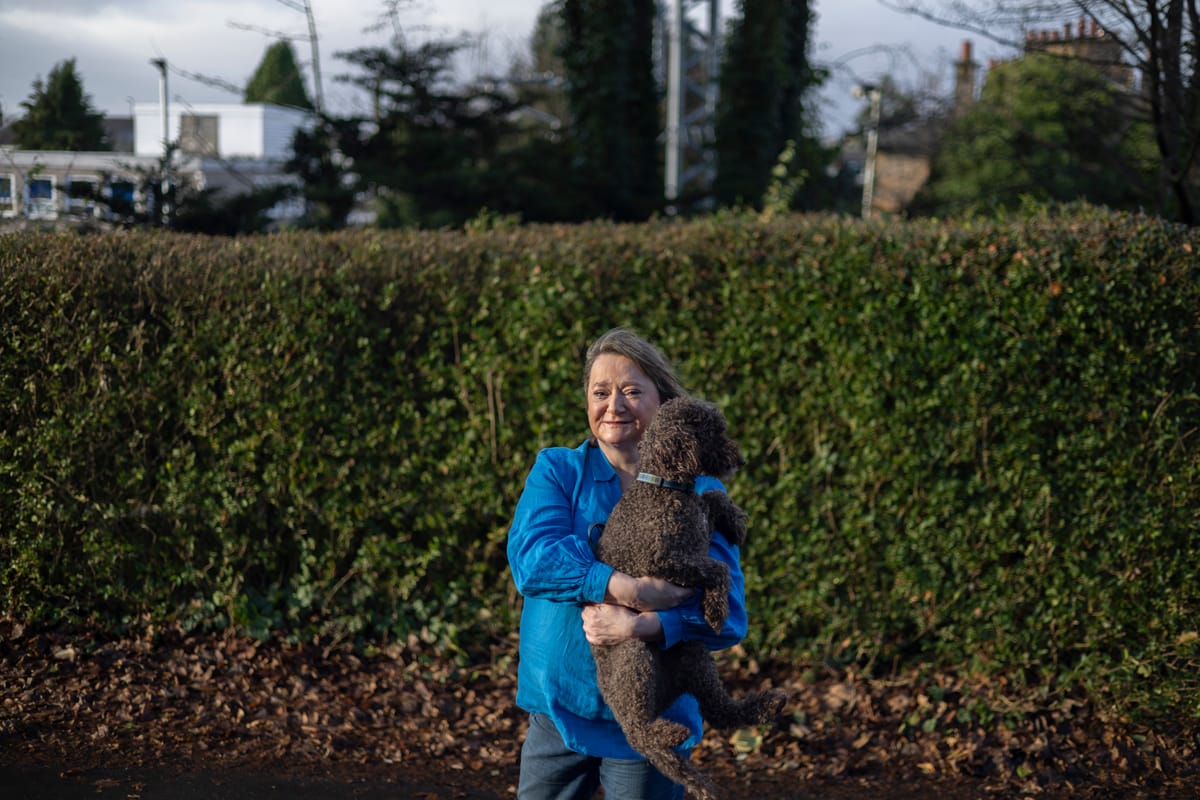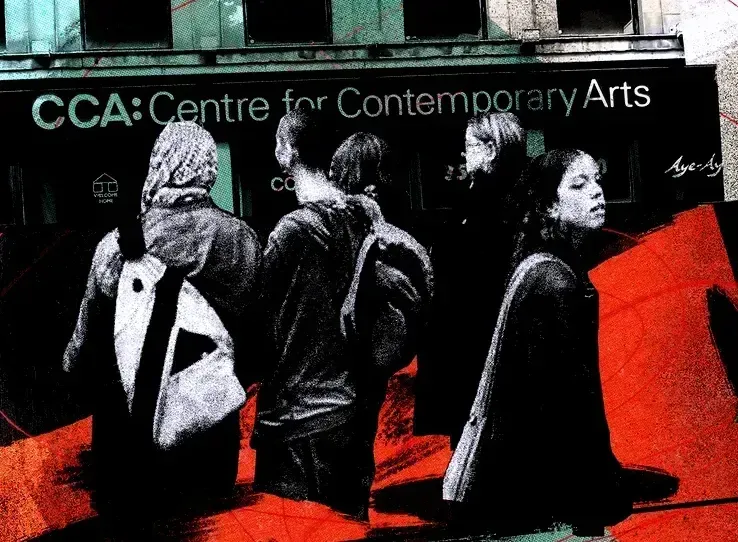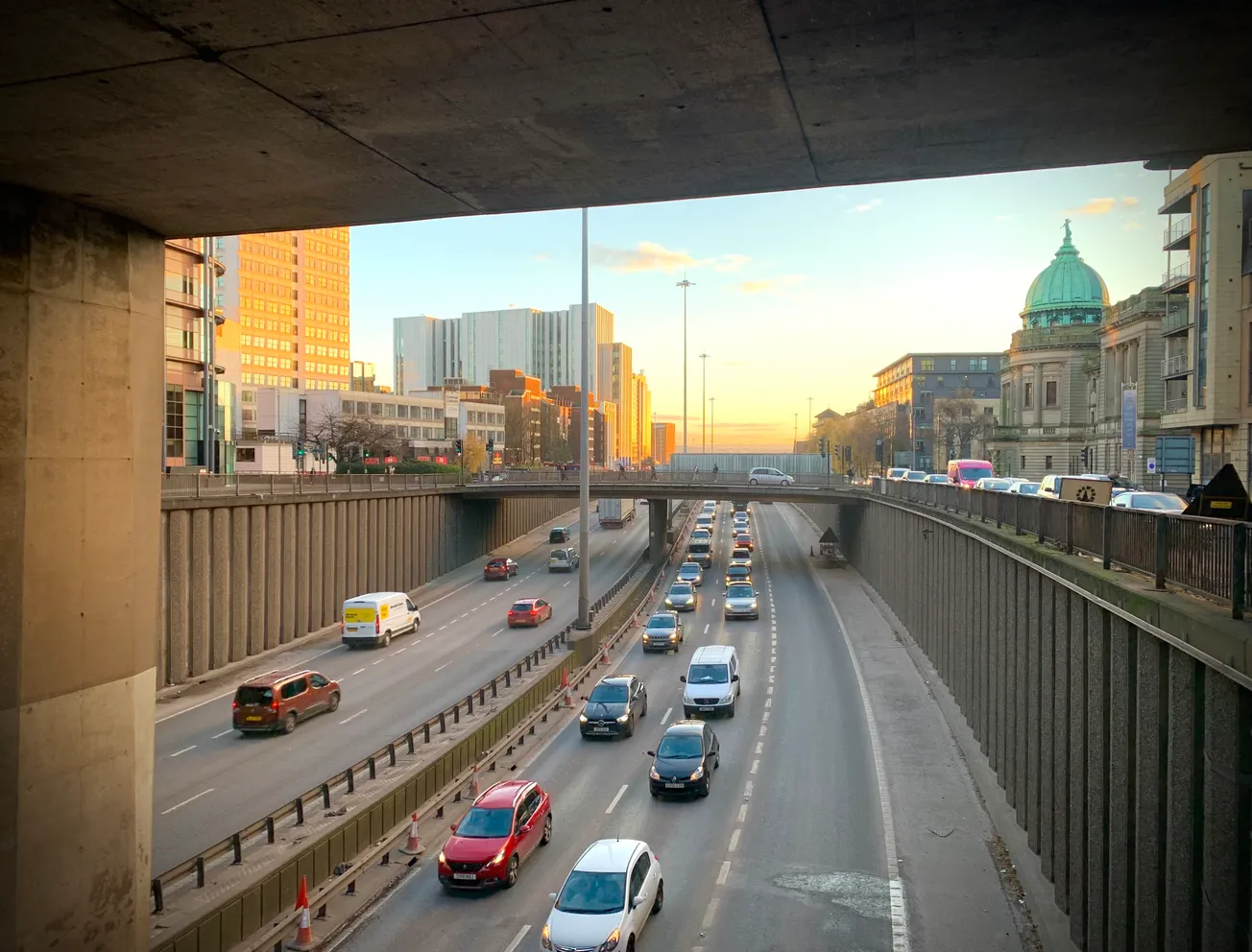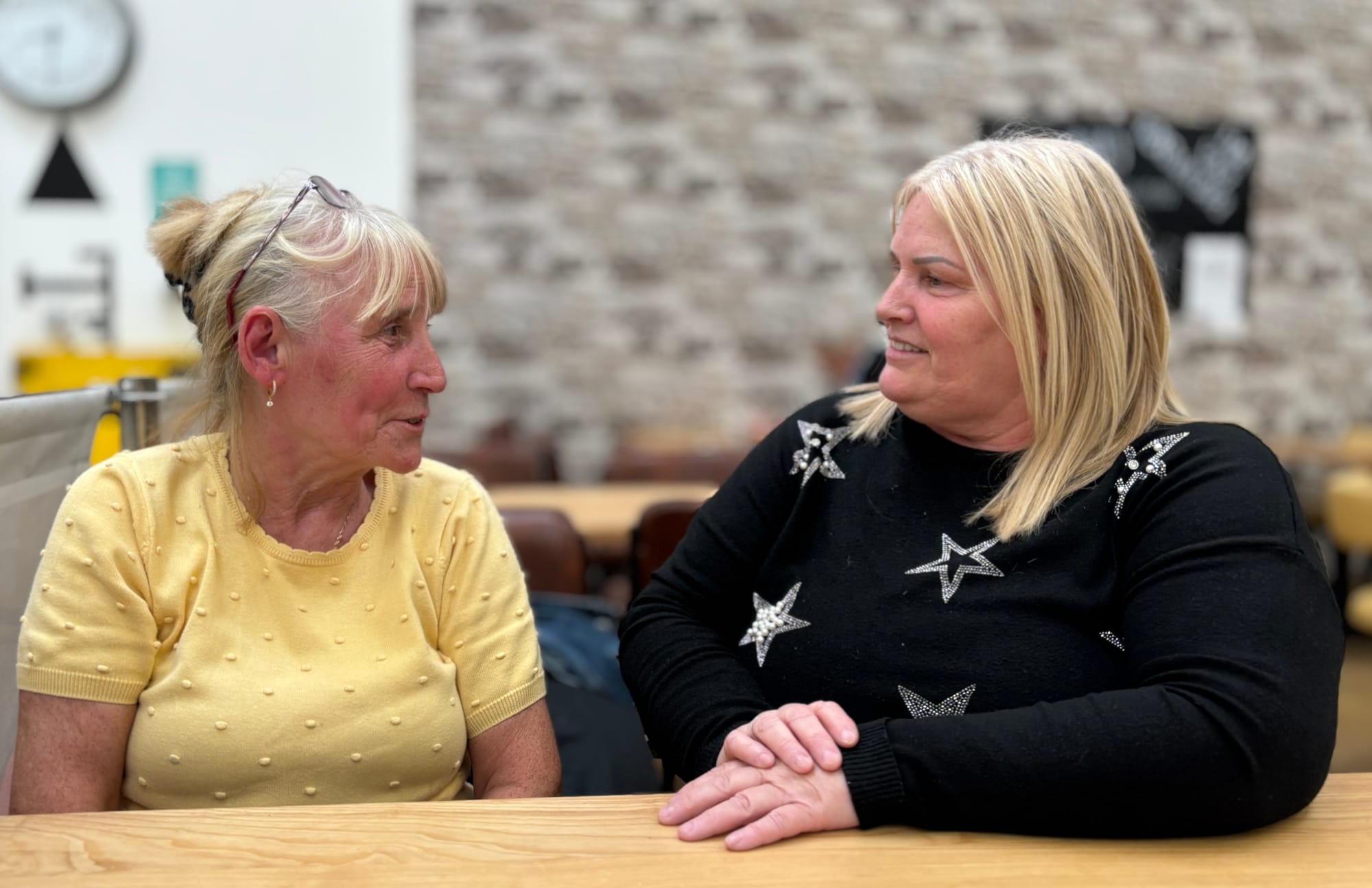Yvonne Crawford remembers when Glasgow’s women stopped traffic.
“I was so proud that day,” she says, fire in her eyes. “Nobody can ever take that away.”
Crawford, 66, is talking about what has since been written into history as the Glasgow Women’s Strike. On 23 and 24 October 2018, 8,000 council-employed cleaners, caterers, carers and support workers walked off their jobs and onto the city’s streets for two days of industrial action. They were protesting a pay structure which saw women routinely paid up to £3 less per hour than men in comparable jobs.
“It was just amazing, to be there standing up with all those other women, fighting for the same thing and making everyone take notice,” recalls Crawford, then a home carer and coordinator.
I recognise her description; I was there too, as a reporter, running between picket lines and watching from the sidelines. The city hummed with a sense of solidarity and optimism. Three months later, it seemed to have paid off: Glasgow City Council announced in January 2019 that a settlement worth more than £500m had been reached. The women would be paid their dues.
And yet, on a Wednesday afternoon in June this year, I find myself in Rutherglen Arcade, sitting across a cafe table from Crawford and her friend Rosie McGowan, a school cleaner, having a very similar conversation to the ones I had over and over again with workers on those two days. Because six years out from a settlement that acknowledged their contracts were discriminatory, thousands of women are still waiting for new ones — and for further payouts.
“People think we just got our money and that was the end of it,” Crawford says. “But we’re still fighting —- for the money we’re owed and for equality.”
That fight hinges on the fact that Glasgow City Council are yet to complete a promised new pay and grading structure designed to eradicate in-built discrimination. In fact, they’re yet to start it; first, a long and complicated job evaluation exercise needs to be carried out, in which all council jobs are assessed individually to decide their relative value. That process has been ongoing for six years and, until it’s completed, the women keep racking up new claims for every day they stay working under their unequal contracts.
In short: until updated contracts are issued, the equal pay debt is not ‘settled’ at all. In fact, it grows by the day.
Overworked and undervalued
When Crawford and McGowan arrive to meet me in the shopping centre, it takes us a few minutes to get settled. On the way in, Crawford has spotted two other home carers having a post-shift cup of tea at another table. “She’s off recruiting,” McGowan jokes to me as Crawford chats animatedly to the women. But she’s not wrong: two minutes later, they’re all pulling up chairs at our table, an impassioned conversation already underway about the expectations placed on Glasgow’s “overworked and undervalued” home carers.
Crawford began working for Glasgow City Council in the early 1990s and stayed for 32 years, eventually retiring in January this year. For many of those years, she started work at 8am each day as a home care coordinator, scheduling shifts and overseeing a team of carers before finishing at 2pm. Then, a few hours later, she’d don an apron of her own and head out for a second shift, as a home carer on the “tea run” — a late shift which mostly involves giving clients dinner and getting them ready for the evening, finishing late into the night.
Welcome to The Bell. We're Glasgow's new quality newspaper, delivered via email. Join our free mailing list to get two full editions a week: a Monday briefing, full of things to do and bitesize news, straight from the city's streets, and a weekend feature, taking you deep inside your local area. You're reading that one right now.
To get total access to all four of our weekly editions, you can join up as a paying member. We'd love that. But we understand you might want to try before you buy, so click below to sign up for totally free and start getting our special brand of local journalism straight to your inbox today.
The job’s changed a lot, she and the other women tell me: visit times are getting shorter, as the list of tasks grows longer. A home carer now is expected to get someone out of bed, shower them, shave them, feed them breakfast, give medications, take their bins out and any number of other tasks, all in 20 minutes, after which time their phone will start beeping and automatically alerting a coordinator that they’re running late. There’s no care left in caring, the women agree; it’s all just a business nowadays.
Business or not, it’s hard graft. As is cleaning, which McGowan has done in an east end primary school for 22 years. At 64, she’s still three years away from retirement, but can feel her body getting tired. “It’s physical work, all the big machines and buffers, and dragging a hoover around,” she explains, holding out her hands. Some of the fingers on her right hand can no longer grip properly. “That’s the one I use for my brushes — it’s gone with the weight of pulling them in and out.”

The other carers who joined us earlier have since gone back to their own table, but one of them returns mid-conversation. “This is just a wee thing to show you,” she says, holding out her phone. She’s had a step count notification: more than 15,000 on this morning’s shift alone. (“You lazy bitch,” Crawford calls after her mischievously.)
We’re here to talk about equal pay but, for the women, the everyday grind of their work and the piling up of new responsibilities are part and parcel of the same conversation. “You’re already not getting paid enough for the job you’re supposed to be doing, and then on top of not getting a proper wage for it they’re expecting more and more,” Crawford says. “It’s like a double whammy. It’s demoralising.”
‘We never got nothing we didn’t deserve’
Crawford and McGowan both received payouts in 2019, two of around 14,000 workers to get one. Under the terms of the deal they’re not allowed to say how much, but the average across all workers was about £35,000 each. Both women got new kitchens, a running theme among claimants I’ve met over the years; one union staffer once recounted to me how online meetings with claimants would always run over in the years following 2019, as each held their phones and laptops aloft to give guided tours of their kitchens.
It was amazing to get that payout, the women agree. “But we never got nothing we didn’t deserve,” Crawford says sternly. “Sometimes you’d say to yourself, ‘I can’t believe I got that money,’ and then you’d sit down and think, ‘well, I bloody worked hard for it all’, do you know what I mean? I was there doing overtime, I was in on the weekends and on my weeks off. I missed christmases and birthdays, nights out, wee plays at the school and all that. I put the hours in.”
2019 wasn’t the first time the women had been paid out: Glasgow’s equal pay story actually began thirteen years earlier in 2006, when the council paid small amounts of compensation to around 11,000 workers in an attempt to address wage inequality. But the problem only deepened in the years afterwards, leading to decades of court and tribunal battles, and culminating in the 2018 strike.
Contrary to popular perception, 2019 wasn’t the last time they were paid out either. In 2023, Crawford and McGowan each received an additional payment to cover the gap between the 2018 settlement and the implementation of the new pay and grading structure. A total of £770m was paid that year — funded in part by the sale of buildings like the Kelvingrove and City Chambers to an arms length organisation, who now lease them back to the council at an annual cost of £32m. Then, with that new pay and grading structure yet to materialise, the clock reset again. The new pay structure, originally supposed to be implemented by “late 2024/25”, still has not been introduced.
“The way I explain it is, they got a payout on the Monday and then on the Tuesday they had a new claim,” Cara Stevenson, an organiser for Women’s Campaigns at the GMB union tells me. In 2018, she was working as a carer in a different local authority —- “and watching Glasgow’s story very closely,” she laughs, an eyebrow raised — but a few years later she began working for the union, which had beefed up its equal pay organising since the strike.
Financial pressures
GMB isn’t the only union involved; Glasgow’s equal pay women are represented variously by GMB, Unison, Unite and legal campaign group Action 4 Equality. All organisations played a role in the court battles, tribunal claims and negotiations that preceded the 2018 strike (although the unions have also faced criticism for their historic role in negotiating and signing off on the original discriminatory pay structure).
But for the last six years, they have stepped away from the picket lines and into the boardroom as they work with the council on actually enacting equal pay for its workers.
Stevenson’s job covers all of Scotland, but she estimates that 80% of her time is currently spent in Glasgow. Her friends and family, and even some staff within the union, have been surprised to hear that’s the case; the misapprehension that Glasgow’s equal pay problems were solved in 2019 is pervasive. But two or three times a week, she heads into the City Chambers to sit round a table with reps, council officers, job analysts and other relevant stakeholders to try and inch closer to a resolution.
“The meetings have been challenging at times,” she says, weighing her words carefully. “But I’d say they’ve been challenging for all parties sitting round the table — at the end of the day, this is about fixing discrimination and that’s a heavy weight for everyone to carry. We all feel the pressure of getting this right.”
And there’s another pressure: financial pressure.Just as that money was hitting women’s bank accounts, almost 300 miles away, another council was doing its sums and coming up empty: in 2023, Birmingham City Council effectively declared itself bankrupt after a projected equal pay bill of more than £700m (a figure that’s now been revised down to £260m, amid questions about the bankruptcy process). There’s still no official figure for what might be owed in Glasgow as the evaluation progresses, but insiders gloomily predict it to be several millions more.
In Birmingham, the knock-on effects are more than new mounting equal pay bills — the ongoing all-out bin strike, which started in March, is a direct result of the council’s need to rectify the discriminatory system. To do this, BCC needs to bring wages in line so men and women are paid equally. Rather than bumping up the wages of sectors dominated by women — like cleaning — they’re trying to cut the pay of male-dominated roles, like refuse collectors, by thousands. Hence the strike.
So can Glasgow even afford to pay its women everything they’re owed? Or fix the broken system?

“For me the question is more about whether they can afford not to,” Stevenson says, firmly. “Fixing this problem will cost them, but then going forward they’ll have a non-discriminatory practice and, if they apply and maintain that correctly, it’ll be the end of the matter.
“What’s the alternative — paying out £500m every three to five years? Ending the discrimination is absolutely cheaper than what’s happening just now.”
For claimants, that question is more straightforward. “They’re always putting us against other people in the city, saying ‘oh we’ll have to sell this, or we’ll have to sell that,’” says McGowan. “I don’t care what you have to sell, just give us our money.” Or, as Crawford puts it with a signature grin: “sell your soul if you like, just get us paid.”
A council spokesperson confirmed the last round of payments were dated to October 2023 and any adjustments necessary would be backdated to then. “All parties involved have always known – and agreed – that a job evaluation exercise and the implementation of a new pay scheme are essential to completing the process of removing inequality,” they said.
“This was always going to be the final part of the process to be completed. It is also the most complex and time-consuming element – and unions have been involved at every step.”
'This is about equality'
As Crawford, McGowan and I chat across our teas and coffees, all roads lead to memories of the 2018 strike. Crawford is in the middle of talking about bonuses when she trails off and says, “but 2019, that was just amazing.” A lull in the conversation and McGowan almost gets misty-eyed: “remember the equal party in the Barrowlands at the end of the strike? Aw, it was just brilliant.”
Nothing can tarnish those memories, both women say, even the lengthy road to economic justice since or the reality of heading into a hard day’s work at 7am every morning, in the dark, knowing you’re not being paid all that you’re owed. McGowan, still employed by the council, “would go on strike again tomorrow if they asked me to,” and Crawford, while relishing in her retirement, “would be right there on the picket lines supporting”.
They might be in luck: union insiders tell me they predict the really tough talks will happen when the process reaches the pay and grading stage, and that they’re already bracing for industrial action at that point.
Meanwhile, the novelty of interim parity payments has worn off. “It’s our money that we earned but we can’t plan for it,” Crawford says. “You never know from one year to the next year, is this going to be the end of it? We would never have thought when it started that it would still be going on all these years. It’s just prolonging the agony.”
And at the end of the day, both women agree, the payouts are only one part of this story. “We’re undervalued but we don’t just mean financially,” McGowan says. “We just want to be equal.”
Are they saying that to be equal to their male colleagues on paper means just as much as the money, I venture?
“I think it means more actually,” answers Crawford, who retired after 32 years having never been given a contract on par with the men. “I don’t want my grandweans to grow up and be told, ‘he’s not any better than you but he’s getting more.’ The payout was for the money we’d earned, but this is about equality for everyone.”







